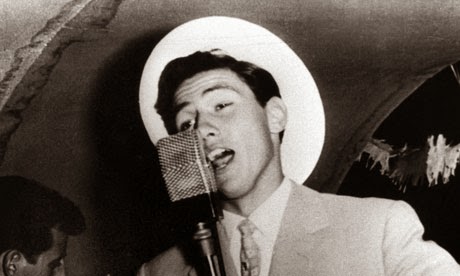MANUEL VALLS

An IFOP poll conducted shortly after the municipal elections in late March gave new Prime Minister Manuel Valls a 58% approval rating while President François Hollande sank to an all-time low of 18%. All hopes are now pinned on Valls, as it appears that most voters have given up on Hollande. Could Hollande's foisting so many of his old ministers on Valls's new cabinet be his revenge on the ambitious young prime minister? It leaves Valls rather hamstrung, with little room to maneuver. Nevertheless, if Valls can maintain the voters' confidence while implementing the tough reforms and cutbacks planned over the next three years, he could present a serious threat to Hollande in the 2017 presidential elections.
 |
| Manuel Valls and François Hollande |
He also announced plans to reduce the number of administrative
regions in France by half by 2021, eliminating duplication and a good many public-service jobs in the process.
Trade unions were predictably unhappy and some Socialist
lawmakers had philosophical issues with welfare cutbacks. The government will
submit its three-year finance plan to Parliament next week.
Look to May 1 Labor Day for mass demonstrations in the streets.
Look to May 1 Labor Day for mass demonstrations in the streets.
SEGOLENE ROYAL
Another new appointee, Environment Minister Ségolène Royal, started
off with a bang when she made the startling announcement that she wants to lift
the controversial Ecotax on French heavy goods vehicles (HGV) and shift the burden
entirely to foreign trucks. It is perfectly legitimate, she reasoned, that
foreign trucks that cross France help pay for the maintenance of the roads they
use, especially since they generally avoid our toll roads and our gas statons, filling
up in Belgium before crossing France. French truckers already pay various
taxes, including the TIPP (taxe intérieure
sur produits pétroliers), she said.
She envisions collecting the Ecotax via a vignette required
to cross the borders into France, and would oblige foreign trucks to use French
toll roads instead of the secondary roads they favor. Her proposal is expected to spark a
heated debate in the Parliament which is largely in favor of the Ecotax on all heavy trucks in
France where pollution is a growing problem, and it is unlikely to be approved by the EU Commission in Brussels given
its discriminatory aspects. For now, Ms. Royal has everybody's attention but
little backing.
The Ecotax, based on the "polluter pays" principle
and applied only to vehicles of over 3.5 tons, is primarily an anti-pollution
tax which is already in effect in seven European Union countries. Its annual revenues
in France, estimated at €1.2 billion, would serve to finance the development
and promotion of alternative freight transportation via rail and waterways, and to
improve public transport in cities by extending tram, bus and metro lines. Many
such development plans are now on hold, awaiting the outcome of discussions in
Parliament and in Brussels.
Known as a savvy politician, Ms. Royal was brought back into
the government by her former partner François Hollande, who after violent
protests in Brittany in October 2013 decided to postpone the twice-delayed
Ecotax once again, this time until January 2015. It is now incumbent on Ms. Royal to
bring this thorny issue to a conclusion. Stay tuned...
CHOC DE SIMPLIFICATION
The Choc de Simplification
that President Hollande announced last summer as one of the ways to make French
businesses more competitive is beginning to take shape. Socialist Deputy
Thierry Mandon and businessman Guillaume Poitrinal have submitted a proposal containing
50 initial changes to simplify a French employee's paycheck, which today has up to 30 lines before arriving at the net salary figure, compared to just
a few lines on a typical German or Dutch paycheck. This very complex payroll calculation
costs French companies an estimated €60 billion per year (€50-150 per employee
per month), according to the OECD, and involves numerous government agencies.
The plan is to group all the payroll deductions and
adjustments into four major categories, bringing the number of lines on a
French paycheck down to no more than five or six, and to reduce the number of
collection agencies accordingly.
The huge task of overhauling the unwieldy payroll administration will not be completed until 2016, but this is an important first step in the process of bringing the French way of doing business in line with the more efficient methods used elsewhere.
Now if they could just decide to open shops on Sunday we
would really be making headway. The issue has resurfaced and Laurent Fabius,
Minister of Foreign Affairs who in the recent government reshuffle was given
the added job of International Development (including tourism), had said that
he is in favor of Open Sundays and would "take care of it". He sees
Open Sundays as good for tourism, and tourism as essential to France. Previous
governments, always fearful of the trade unions, have never been decisive on
the issue, allowing certain business to open and others not, in certain areas
only and not in others, for certain months only or until a new directive could
be issued... ad nauseam. Fabius's dealings with Syria, Mali, the Central African Republic,
Ukraine, etc. should be good preparation for his confrontation with the French trade
unions.
BERLUSCONI'S SOCIAL SERVICE
 |
| Young Berlusconi |
Success with the elderly crowd guaranteed.







